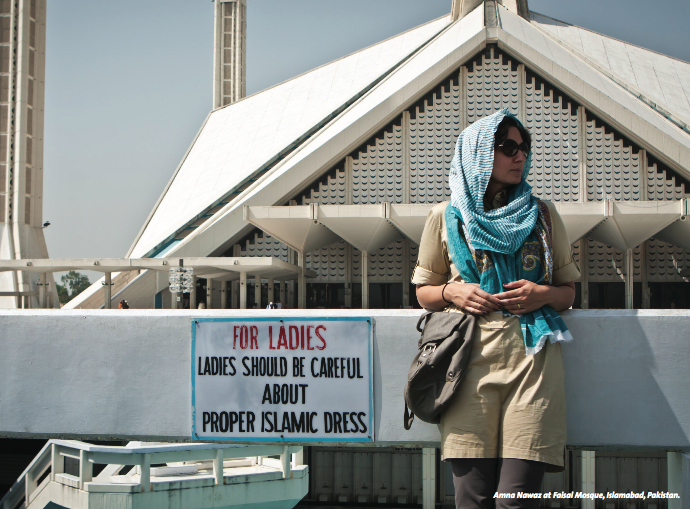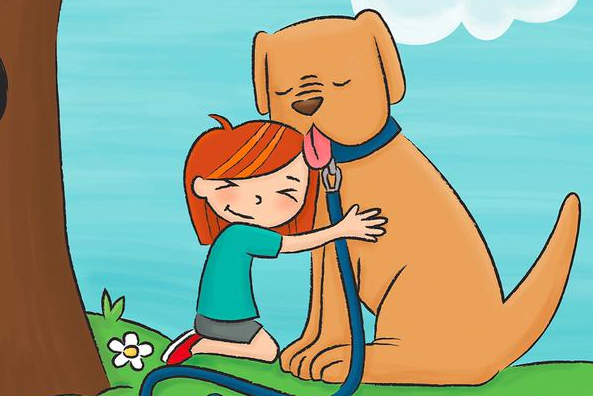Amna Nawaz is hard-pressed to name a favorite story she’s worked on in her Emmy Award-winning career, which has taken her everywhere from Syria to South Africa, from Haiti to Pakistan, where she was NBC’s Islamabad bureau chief for several years. It’s hard to pick favorites when every single assignment, whether it’s taken two hours or multiple months, has left a lasting impression.
“I have hundreds, if not thousands, of photos of all the people I’ve met along the way,” says Nawaz. “It still blows my mind that as a journalist, you can walk up to people in their home and ask them about what’s going on in their lives, what they’re learning or what they’re scared about. In some cases, these are conversations that I have trouble starting with my friends and family, but I can engage with a stranger, who can help inform me and fill in the gaps of understanding.
“I think that’s what makes this job so great,” she continues. “Literally everyone I have ever met has had a story, and everyone deserves a chance to be heard.”
Though Nawaz’s father was a well-known war journalist and anchor in Pakistan, she initially didn’t have plans to follow in his footsteps. She was born in northern Virginia, just outside of Washington, D.C., and though she always loved writing, she initially planned to go to law school.
“We were always taught growing up that we were luckier than most people in the world,” she says. “That with these opportunities, we had to give back, and our job was to make things a little bit better than how we found them.”
After college, she did a fellowship at ABC News, which was just supposed to be a pit stop before law school, but weeks into the job, the September 11 attacks happened, and her world was turned upside down.
“I felt like a huge part of my identity, as a Pakistani American and Muslim American, was suddenly under very sharp focus,” she says. “A lot of questions were being asked that I didn’t have the answer to, and journalism became a solace for me. I found peace and direction in the pursuit of information and answers to questions.”
She moved to London to get her masters in international political relations at the London School of Economics, but when the war in Iraq happened, she knew she wanted to be there. “When you feel something that strongly, you have to go with it,” she says, “so I came back to the States, got a job with NBC News, and I’ve been with the network ever since.”


In 2013, she became the first foreign journalist to gain access to North Waziristan, the region in northwest Pakistan bordering Afghanistan that is the global hub of Al Qaeda and Taliban activity.
Having worked at the foreign desk of a national American news network for a decade, Nawaz thinks sometimes media does a great disservice to readers by categorizing stories as “foreign” or “domestic.” “You can find a reason to care about anything, whether the story is happening in Syria or Arkansas,” she says. “How we tell it is what ends up making people care or not. But people are the same wherever you go. Everyone at heart wants the same things for themselves and for their family. If you talk to a mom about what she was feeling when her children were in danger, regardless of the circumstance, the language or location, moms everywhere hear what she has to say, see the look in her eyes and get it.”
Nawaz recently became a mother herself and also transitioned into a new job as the editor of NBCnews.com’s new Asian America vertical, which launched one year ago. NBC is the first national news organization to create a specific outlet for Asian Americans, and it is one of three diversity verticals, including sites that represent the Latino and African American communities.
“NBC News as a business realized a huge swath of America isn’t being served as it should be,” explains Nawaz. “And the best way to make sure the complete fabric of America is being represented in the national conversation is to have focused resources looking for these stories.”
After almost a year of covering Asian Americans, Nawaz is still finding out about new organizations, issues, communities and voices that she’s excited about highlighting. “We want to tackle some of the tough subjects not being discussed at the national level, like poverty, income disparity, the education gap and how race is discussed in America,” she says. “So we have our work cut out for us, but that’s a wonderful problem to have.”
She’s proud of a recent story they did called “For Asian Americans, Wealth Stereotypes Don’t Fit Reality.” The story was part of a greater series called “Class In America: Who Do You Think You Are?” created by NBC News as part of In Plain Sight, a special editorial initiative focused on inequality and poverty in the United States. Their reporting showed that while the general population tends to assume Asian Americans earn higher incomes, these broad data points don’t show the vast disparity in income between families whose highly educated parents immigrated to America to study in graduate programs versus other immigrants who migrated to this country as refugees.
While stories like this explore Asian American communities in a more extensive way, they are meant to inform readers of all backgrounds. “It’s about having space to show that perspective from within the community, as opposed to from someone outside the community looking in,” she says. “That’s very valuable and very potent.
“Everybody has certain ideas about different American communities, but part of our responsibility is to unpack these assumptions and bridge these gaps,” she continues. “Because ultimately, it’s about helping people understand their neighbors, the people they stand in line next to at the grocery store or the people their kids go to school with.”
This story was originally published in our Summer 2015 issue. Get your copy here.





